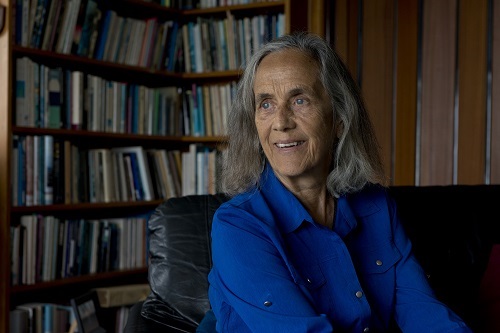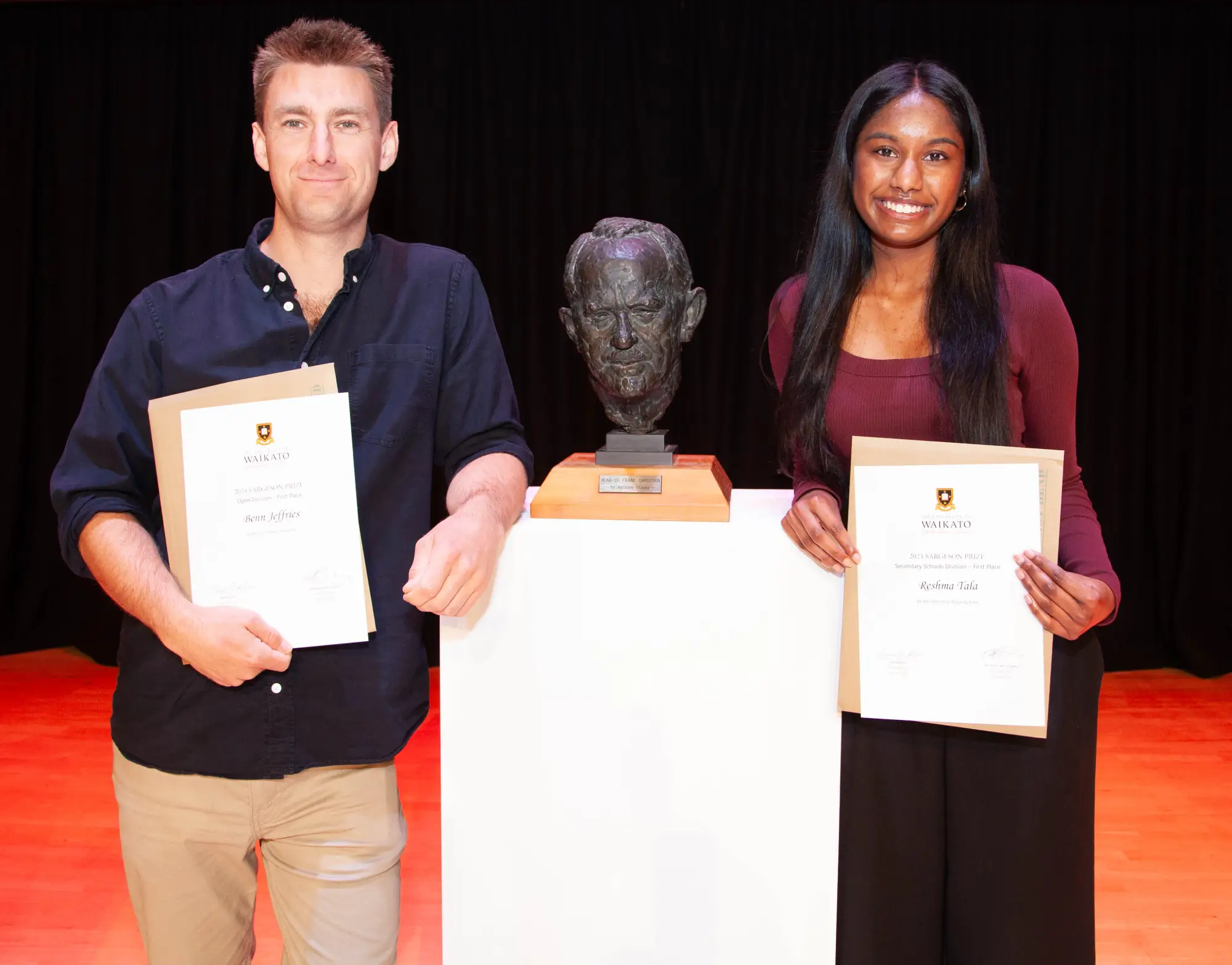
Patricia Grace - chief judge in this year's Sargeson Prize (Photo credit: Grant Maiden)
Now in its third year, the competition is named for celebrated New Zealand writer Frank Sargeson, and is sponsored by the University of Waikato. It was established by Catherine Chidgey, Senior Lecturer in Creative Writing at the University of Waikato, in 2019.
The first prize in the Open Division is $6000, with $1000 for second place and $500 for third prize.
The Sargeson Prize also encourages the next generation of writing talent with its Secondary Schools Division for students aged between 16 and 18. The first prize winner in this category will receive $500 and a one-week summer residency at the University of Waikato, including accommodation, meals and mentoring.
Acclaimed New Zealand writer Patricia Grace is the chief judge in this year’s Sargeson Prize.
She has published seven novels and seven short-story collections, as well as a number of books for children and works of nonfiction. In 1975, she published the first collection of short stories by a Māori woman writer, Waiariki.
“We are enormously lucky to have her as a judge, and she brings such mana to the competition,” says Chidgey. “She’s put New Zealand literature on the map internationally, and she’s hugely respected. Her stories are well-known and loved.”
Grace says she is looking forward to reading all the entries.
“A good short story will capture the interest of the reader immediately, within the first paragraph or even the first sentence. And that beginning will hold out a promise of what’s to come,” she says.
Every addition to the story should add to the development of character or storyline until it reaches a conclusion.
“This might be something solved, something resolved, something not resolved, and more to think about once the story is over.”
She suggests writers “avoid cliche” in their story.
“I would love for it to have scintillating language and to throw up strong images in the way that words are used. And if there is dialogue, for it to be sharp and recognizable.”
Even at 83, Patricia makes writing part of her daily practice.
“I always have a routine, but it’s changed over the years according to the circumstances of my life, but at the moment I get everything done that needs to be done by nine o’clock, and start writing about then.”
This year, winning stories in both the Open and Secondary Schools category will be published online on ReadingRoom, the literary arm of Newsroom, managed by journalist and author Steve Braunias.
He says the Sargeson Prize contributes greatly to the health of the creative writing profession in New Zealand.
“I think it’s a very important prize and I congratulate the University of Waikato for backing it, and for supporting it,” says Braunias. “I think it’s crucial to the development and encouragement of the short story form in New Zealand.”
He says it is a form of writing which has a strong history in this country.
“The short story in New Zealand has had a very long and distinguished past,” says Braunias, citing Frank Sargeson, Katherine Mansfield, Janet Frame, Owen Marshall, Patricia Grace and Witi Ihimaera among the masters of the form in this country.
Braunias says that diversity and changes in society in New Zealand are being reflected in literature, particularly in short stories.
“I think this is a very exciting period, and we are on the verge of discovering new ways of writing creative fiction and nonfiction. Some or a lot of this is going to be led by writers of colour including Māori writers, Pacific writers, writers from China, India, the Middle East, refugee writers and those from long-established families who have come from other places.”
He is also excited to see the stories that will come from young writers in the Sargeson Prize, and encourages schools and young people to enter.
“Short stories are appealing to young people, and the word length is a lot more manageable.”
Entries in the Sargeson Prize close on June 30, 2021.
For more information on the competition, see the University of Waikato website here.


